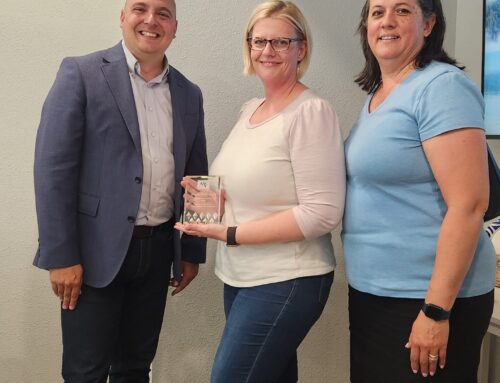Legislative Update – 5/24/19
This is the final week for policy committees to pass bills. Any bill not passed out of a policy committee (other than Rules or Revenue) is dead after Friday. All legislation passed after Friday will have to come from either Rules, Revenue, or Ways & Means. This signals that the 2019 legislature is in the homestretch. It also signals that the decision-making will really come down to just a handful of legislators. Most legislators will have little or nothing to do from this point forward other than casting votes on the floor. Democratic leadership can attempt to pass any bills that they want. The only reason there would need to be any negotiation whatsoever going forward is because:
- Republicans are still employing delay tactics which could be very impactful as of the June 30th constitutional end date draws closer.
- Republicans have complete leverage on a key Measure 11 ‘reform’ bill sought by Democrats as they do-not have the votes to pass SB 1008 on their own.
- Republicans have some leverage on PERS reform as it is unlikely that Democrats can produce all the votes needed to pass SB 1049 on their own.
- Republicans have complete leverage on the “kicker” issue as Democrat leadership is seeking to be able to spend some of the $1.4 billion personal kicker.
- Commercial Activity Tax (HB 3427)
The $2.8 billion tax was signed into law by Governor Brown. Starting January 1, 2020, all businesses doing business in Oregon will see:
- A gross receipts tax rate of 0.57% on Oregon sales over $1 million.
- A 35% deduction from taxable sales for labor OR business inputs, whichever is higher.
- An exemption for groceries (defined as those that qualify for ‘SNAP’) and transportation fuel.
- Cap-and-Trade (HB 2020)
As of last Friday, HB 2020-A passed its first major milestone. After three hours of debate, the Joint Committee on Carbon Reduction adopted the 94 amendments on a party line vote and sent the bill to the Joint Committee on Ways & Means for further deliberation. Democrats voted down all other amendments that were brought forward, although it was widely acknowledged that rural Oregon would suffer job loss and economic hardship under the bill. Transportation costs will increase. Natural gas costs will increase. Propane costs will increase. Local food processors and manufacturers will face a real competitive disadvantage. Small businesses and households will see an increase in transportation and energy costs. This bill will increase the cost of living and working in Oregon – all residents will bear the cost of fuel increases and increased natural gas rates. It is projected to immediately drive up the cost of gas by $0.16 per gallon, and natural gas customers will face double digit rate increases in the first year of the program.
You can send messages to legislators regarding Cap-and-Trade here: https://www.votervoice.net/OSCC/campaigns/63354/respond
Other issues of importance:
- State Revenue Forecast
The state revenue forecast added $770 million to state coffers for the upcoming 2019-2021 biennium. Just from the last forecast in March, every metric grew by eye-popping numbers due to a historic influx of revenue over the tax season. In addition to the influx of $770 million to the upcoming budget cycle, the kicker almost doubled in size. It’s now projected at $1.4 billion. Net reserve funds are now nearly $3.5 billion. The real impact of the historic revenue forecast is that it will deter talk of any additional tax revenue for the remainder of the 2019 legislative session.
- PERS Reform (SB 1049)
The legislature’s attempt at PERS reform was unveiled in Senate Bill 1049. It passed the Senate today on a vote of 16-12. It contains the following provisions:
- Tier 1 and 2 members, who are public employees who entered the PERS system before 2004, would have 2.5% of their salaries diverted from their individual retirement accounts into paying off the system’s debt.
- Workers hired 2004 or later (PERS Tiers 3 and 4) would face a lower diversion of their salaries – 0.75%.
- Public employees earning less than $30,000 a year would be exempt.
- A reduction in assumed interest rate for retirees who use “money match” method of calculating their pension benefits.
- Most importantly, legislators seem to have gone away from the efforts to raid SAIF to cover the PERS liability, which is a good development for Oregon employers.
- The bill would allocate sports betting revenue from the Oregon lottery into a fund to match employer incentives.
Although it is only a modest cost-saving measure, the unions oppose it. The bill heads to the House. The teacher’s union and other public employee groups have warned that passing of the bill violates the pension promises made to workers and could trigger a court battle similar to one that stopped any reform back in 2013.
- Equal Pay Technical Fixes (SB 123-A)
On Tuesday last week, the Oregon Senate passed SB 123 unanimously. The bill includes several important technical fixes to give employers clarity in implementing Oregon’s Equal Pay Act. Oregon’s law is the most comprehensive in the country, and it has been difficult for many employers – large, small, and even seasonal – to implement.
- HB2014 Lawsuit Damages
This bill will effectively eliminate the current legal limit of $500,000 on non-economic damages in personal injury and negligence lawsuit claims. Organization such as health care groups and business organizations are opposed to the bill because it is a significant factor in driving up healthcare costs and general liability costs for employers. The Senate Judiciary Committee will vote on this bill this week and will likely pass on party-lines however, the bill could be defeated on the Senate floor.
There are fewer than 45 days left before the session adjourns. You have a voice and can share that with legislators by clicking on this link: https://www.votervoice.net/OSCC/campaigns/63354/respond.




